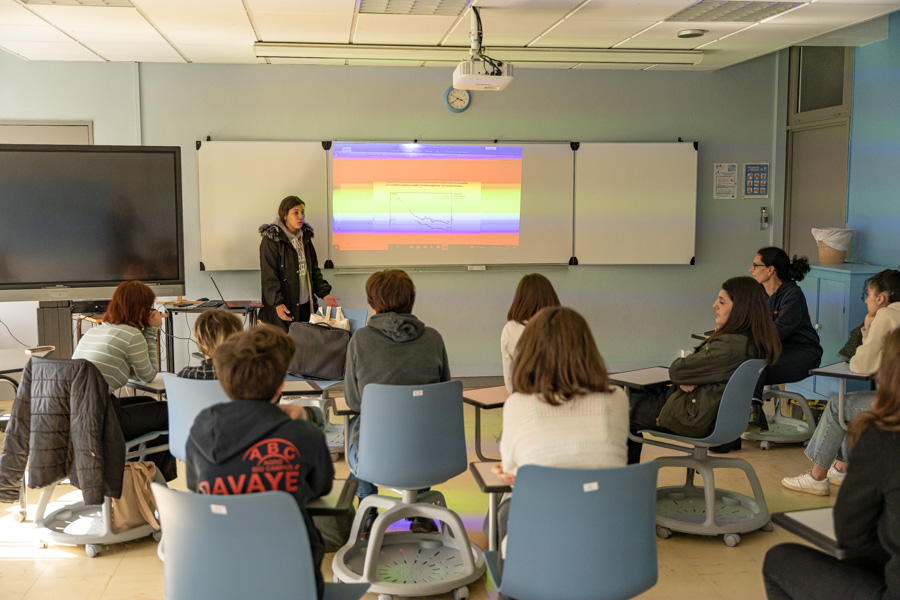Defiaa, a wave of color over France
Defiaa, a wave of color over France The India network organizes the reception of Indian students and their internships in a dozen agricultural high schools in France. After a week of integration at the Lycée Agricole Français de Théza in Perpignan, they head off to partner establishments in the DEFIAA program – Developping French Indian Exchanges in Agroffod and Agronomy – and experience the French adventure.
Every year since 2015, the India network of agricultural education has welcomed around 20 Indian students from Pantnagar’s GBPUAT University to France for just over a month. This government agricultural university is one of the most renowned in India, located in the northern Indian state of Uttarakhand, at the foot of the Himalayas.
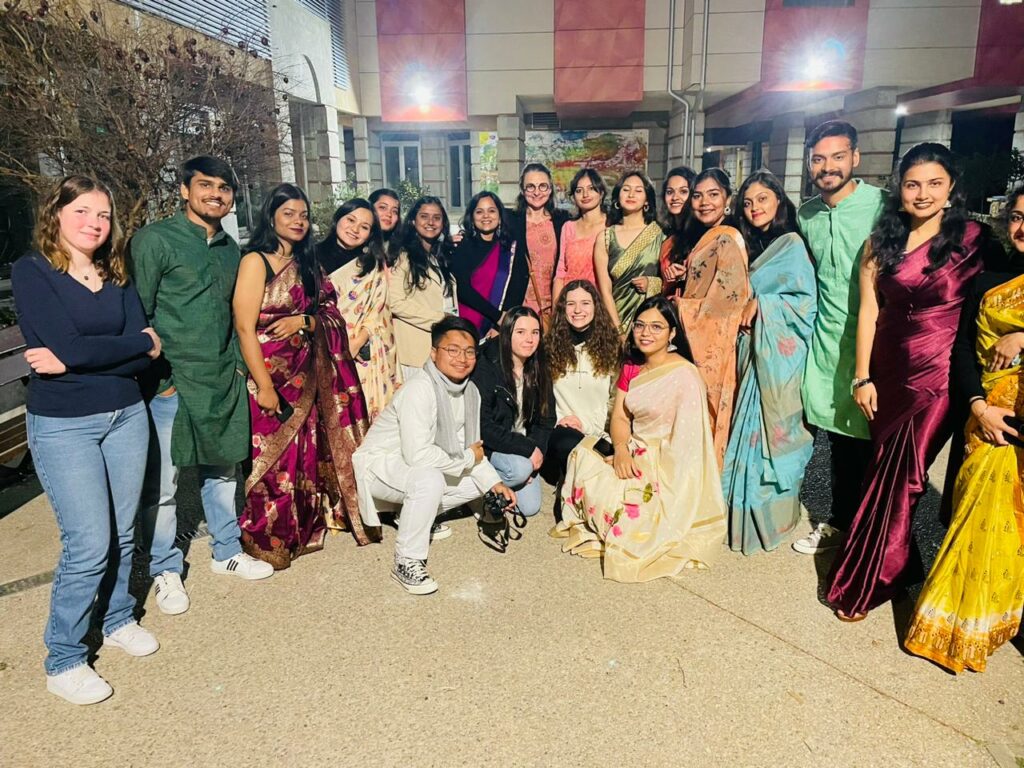 Some fifteen young Indian students hosted in March 2023, as part of the DEFIAA program, share their experiences on the Moveagri social network, which is specially dedicated to sharing the experiences of young people in agricultural education. What they all have in common – Indians, French nationals and any other young people who have completed a mobility program abroad – is to share the incredible moments they experienced during their internship or study stay.
Some fifteen young Indian students hosted in March 2023, as part of the DEFIAA program, share their experiences on the Moveagri social network, which is specially dedicated to sharing the experiences of young people in agricultural education. What they all have in common – Indians, French nationals and any other young people who have completed a mobility program abroad – is to share the incredible moments they experienced during their internship or study stay.
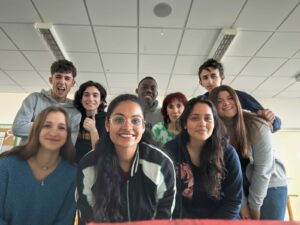
They have all set up blogs to describe their impressions and experiences of the DEFIAA mobility program, too, in which they illustrate their stay with numerous photos of their cultural visits from Collioure to Normandy, via Paris and Lyon, as well as the periods they spent attending classes in the various establishments they were assigned to in different French regions.
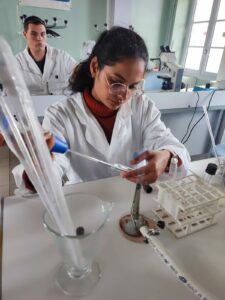
Mansi talks about her stay at the Chartes – EPL de la Saussaye farm.
In la Saussaye , we learned a lot of things regarding food processing. We made French baguette , wheat flour, apple juice , biscuits , ice cream , sorbet and croissants. We experienced some new ways of working in laboratory that were slightly different from our country. Alongwith we attended microbiology practicals and some English classes. in English classes we got a chance to communicate with the French students and they prepared a lots of questions for us to know about India. This was really an interactive session for us as well as for them.
Annu also tells us what she experienced during her 35 days in France.
We took French language classes, and also got a taste of French dance and cuisine. The next day, we went to Collioure and Saint Cyprien for a real-life experience. It’s a town full of culinary art, art, wine, food, charming people, beautiful markets representing French culture and the sea offering a full range of pleasures. It’s an iconic postcard location. Farid and Charles) and we were lucky enough to visit two institutes (LEGTA les Sardières in Bourg en Bresse and Lycée agricole St Genis Laval in St Genis Laval)…Goel Krati concludes his blog with a very philosophical message about what comes out of this confrontation with the unknown, inherent in every journey far from home.
I think it goes without saying that when you live away from home in another country, you quickly build your self-confidence and develop your cultural sensitivity. Eventually, you’ll stand out from the crowd, and that’s when your learning abroad will be an asset to your success in life. These are life skills that will help you to integrate easily into the global working environment and give you confidence when interacting with people from another culture or country. It can be intimidating at first, but it’s only a matter of time before you build up your confidence, but it’s definitely a holistic learning experience.
To understand the feeling of such an adventure, there’s nothing better than reading all the blogs they created during their stay and discovering the photos they deliver to us by surfing on the Moveagi platform. 15 young Indians submitted to the exercise and as many blogs were created to follow them step by step during more than a month in France, They criss-crossed the whole of France, going from farm to farm, visiting food-processing factories, discovering French culture and tasting local products.
Read all about the young Indians taking part in Defiaa 2023 on Moveagri.
This summer 2023, their French counterparts will share the same experience in India, as part of the same study and internship program.
Contacts: Chantal Desprats and Christophe Groell, India network coordinators, chantal.desprats@educagri.fr, christophe.groell@educagri.fr
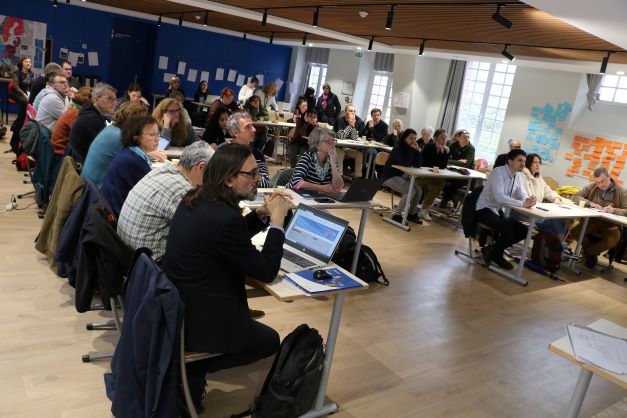 The 35 participants present from April 12 to 14, 2023, from Belgium, Germany, Luxembourg, Denmark, Finland, Latvia, Turkey, Poland, Sweden, Spain, Estonia and France, took an active part in the activities proposed around agroecological issues to build their future projects with one or more of the European partners present.
The 35 participants present from April 12 to 14, 2023, from Belgium, Germany, Luxembourg, Denmark, Finland, Latvia, Turkey, Poland, Sweden, Spain, Estonia and France, took an active part in the activities proposed around agroecological issues to build their future projects with one or more of the European partners present.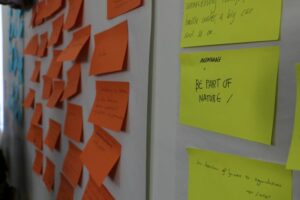 Participants then shared their views on agro-ecology, sustainability and how these concepts should be taught. Some
Participants then shared their views on agro-ecology, sustainability and how these concepts should be taught. Some 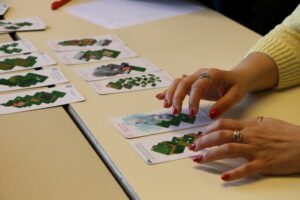 presented their experiences of agro-ecology projects in a poster session. The others were able to find out about these experiences and this gave rise to exchanges of practice. The representatives of each partner institution enthusiastically took part in each workshop, which offered a range of activities: the fundamentals of agro-ecology, the « AgroChallenges » serious game for agricultural education and the « Agro-ecology » kit EducLocalFOOD. The programme for the meeting included a tour of the agro-ecology principles followed at the Bergerie nationale farm. Speeches by researchers, experts in agro-ecology and in educational issues, enabled these two aspects to be explored in greater depth.
presented their experiences of agro-ecology projects in a poster session. The others were able to find out about these experiences and this gave rise to exchanges of practice. The representatives of each partner institution enthusiastically took part in each workshop, which offered a range of activities: the fundamentals of agro-ecology, the « AgroChallenges » serious game for agricultural education and the « Agro-ecology » kit EducLocalFOOD. The programme for the meeting included a tour of the agro-ecology principles followed at the Bergerie nationale farm. Speeches by researchers, experts in agro-ecology and in educational issues, enabled these two aspects to be explored in greater depth.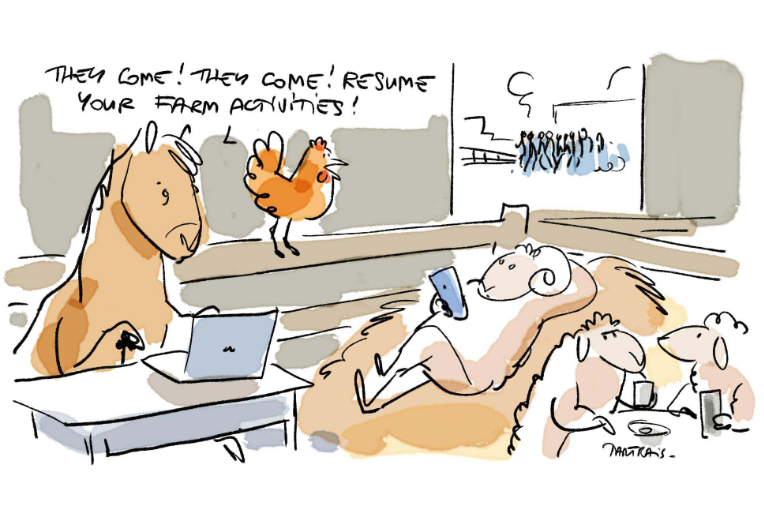 It has to be said that the offbeat and sympathetic approach of the professional cartoonist and the quality meals, prepared with respect for ‘AB’ products and/or from local produce, by the Bergerie’s catering service, also contributed to the success of the meeting. The participants left delighted with their experience in Rambouillet and highly motivated to set up European projects. Agroecology taught at La Bergerie – Since 1994, La Bergerie, a zootechnical teaching centre, has been a pioneer in raising awareness of the concept of sustainable development and offers a wide range of training courses, particularly in agroecology. Agroecology is an environmentally-friendly form of agriculture that seeks to improve biomass renewal, ensure favourable soil conditions for plant growth and make the most of biological interactions by using ecological processes. It favours farming that is profitable, more self-sufficient and more local. The Bergerie Nationale aims to develop a coherent production system for its farm.
It has to be said that the offbeat and sympathetic approach of the professional cartoonist and the quality meals, prepared with respect for ‘AB’ products and/or from local produce, by the Bergerie’s catering service, also contributed to the success of the meeting. The participants left delighted with their experience in Rambouillet and highly motivated to set up European projects. Agroecology taught at La Bergerie – Since 1994, La Bergerie, a zootechnical teaching centre, has been a pioneer in raising awareness of the concept of sustainable development and offers a wide range of training courses, particularly in agroecology. Agroecology is an environmentally-friendly form of agriculture that seeks to improve biomass renewal, ensure favourable soil conditions for plant growth and make the most of biological interactions by using ecological processes. It favours farming that is profitable, more self-sufficient and more local. The Bergerie Nationale aims to develop a coherent production system for its farm.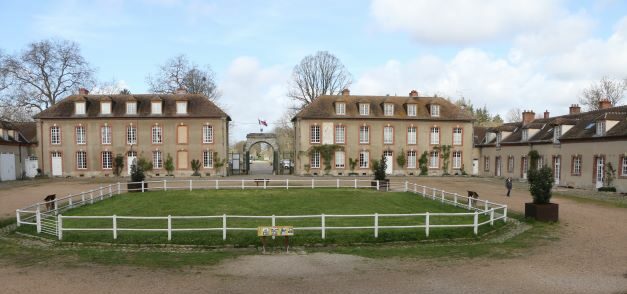
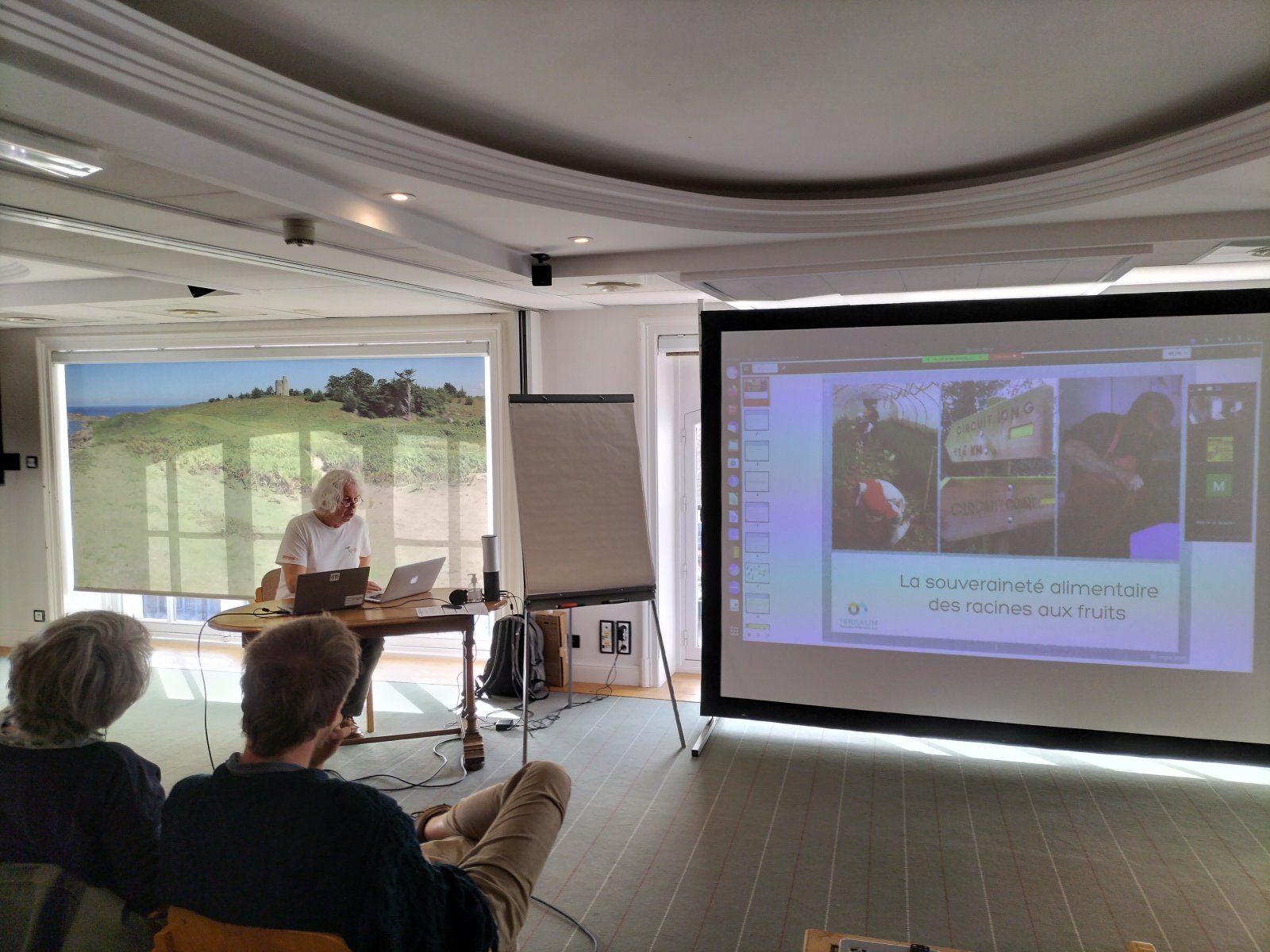
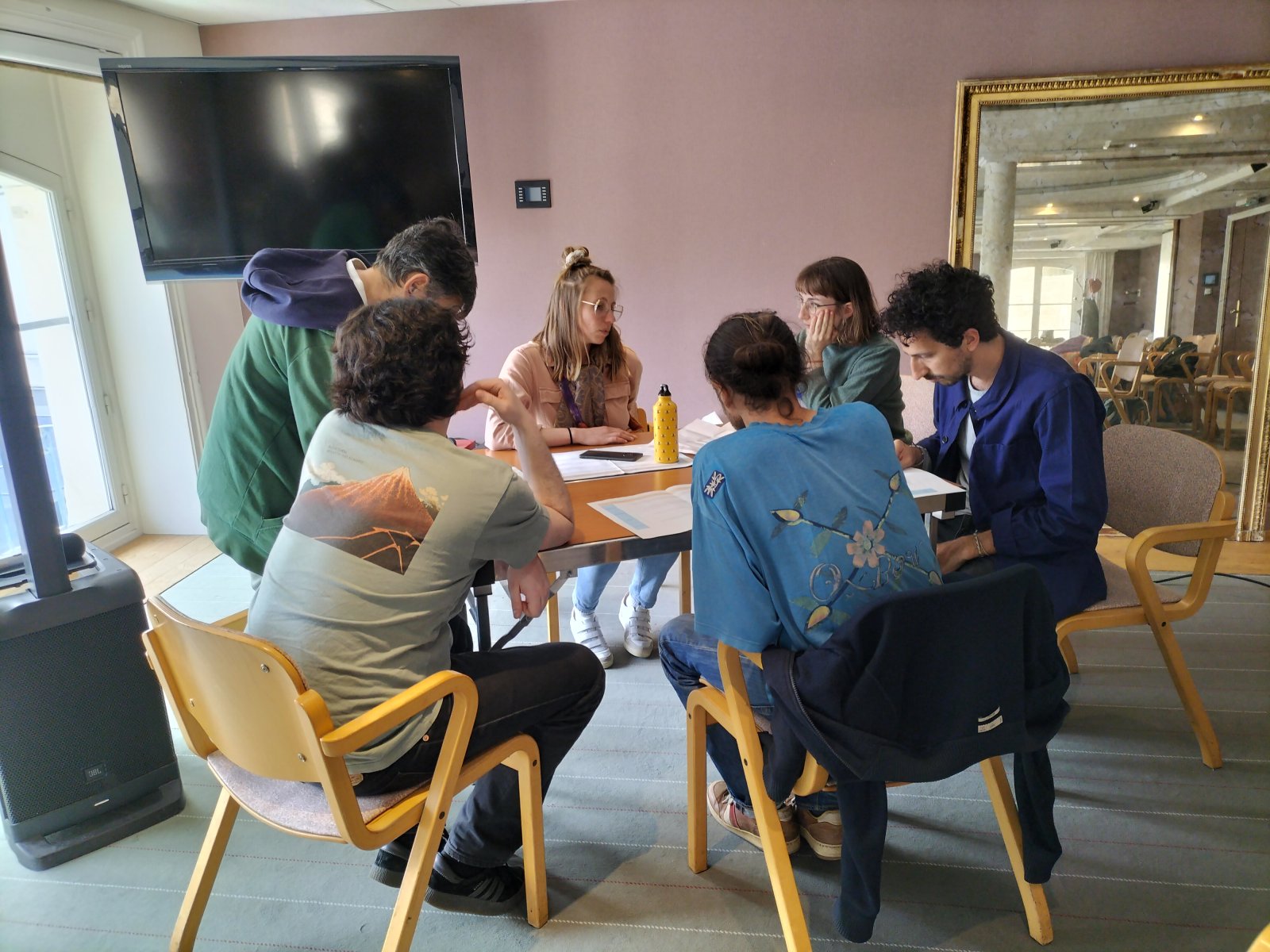
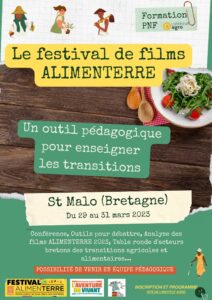 La suite de la formation a permis aux participants de découvrir la sélection de films de l’édition 2023 du festival ALIMENTERRE, mais pour le grand public, il faudra patienter jusqu’en mai… Les participants ont ainsi travaillé à l’édition de fiches pédagogiques sur chaque film, rencontré un réalisateur de documentaire de la sélection, testé l’outil « la fresque de l’alimentation », et ont découvert le
La suite de la formation a permis aux participants de découvrir la sélection de films de l’édition 2023 du festival ALIMENTERRE, mais pour le grand public, il faudra patienter jusqu’en mai… Les participants ont ainsi travaillé à l’édition de fiches pédagogiques sur chaque film, rencontré un réalisateur de documentaire de la sélection, testé l’outil « la fresque de l’alimentation », et ont découvert le 